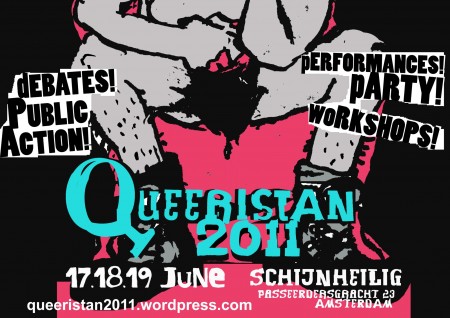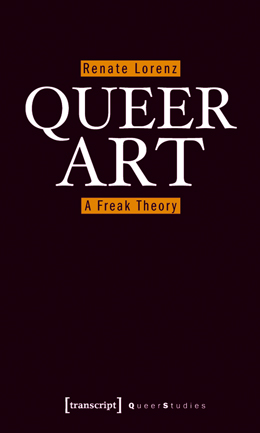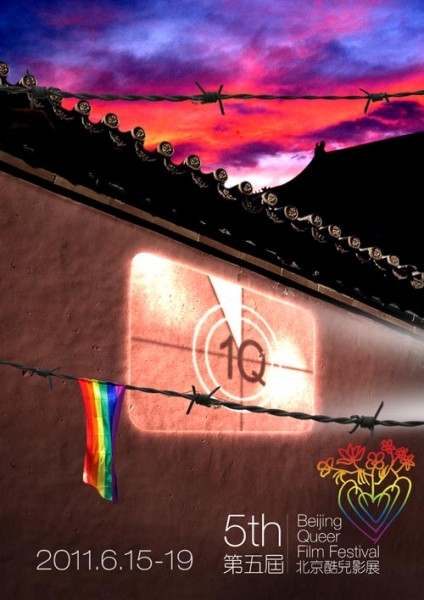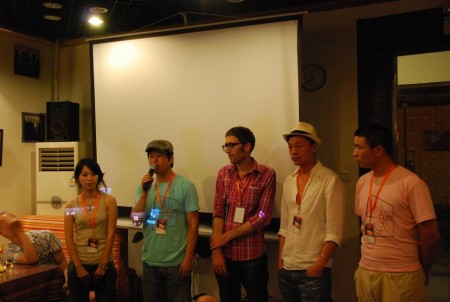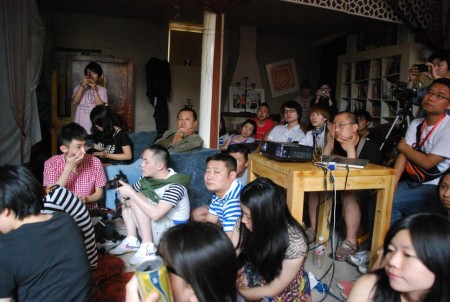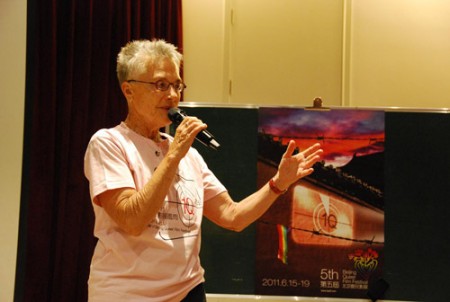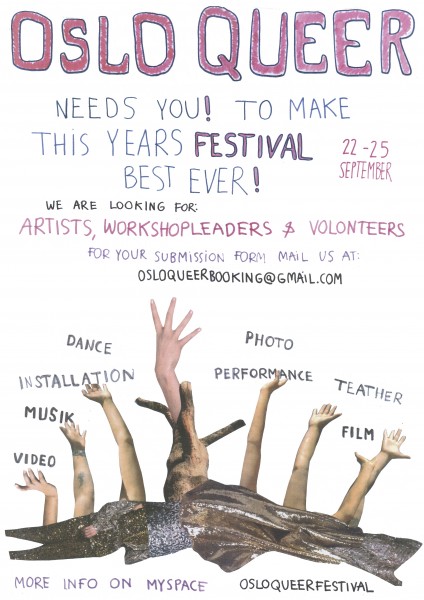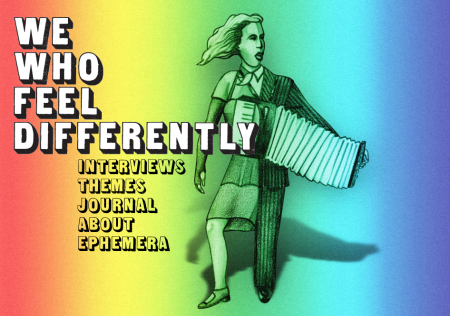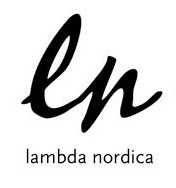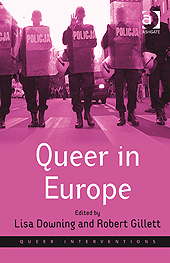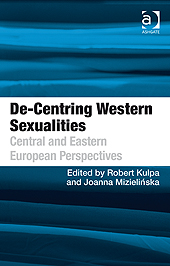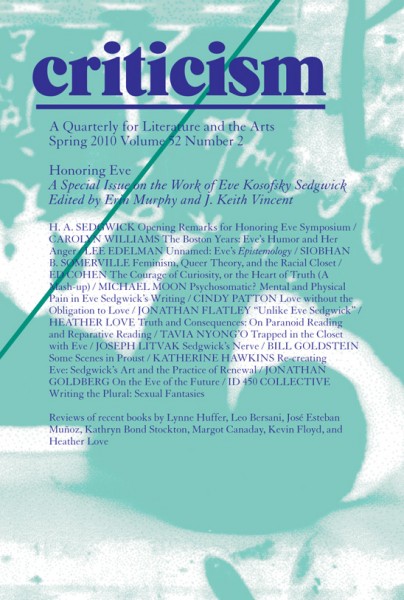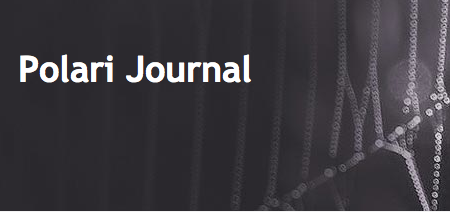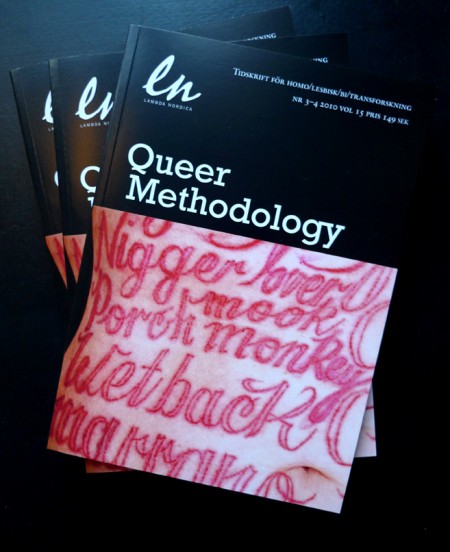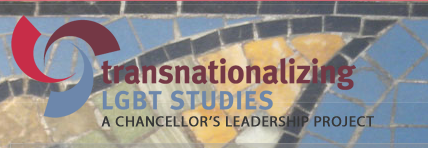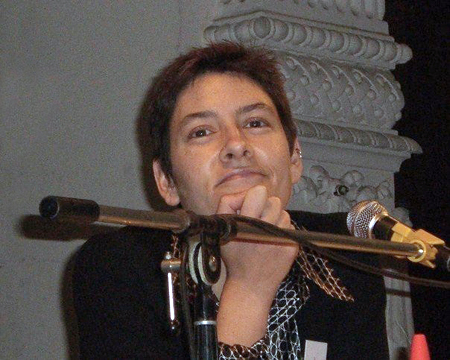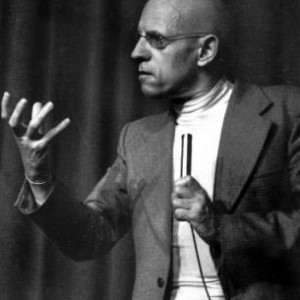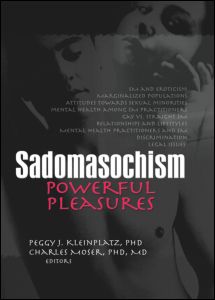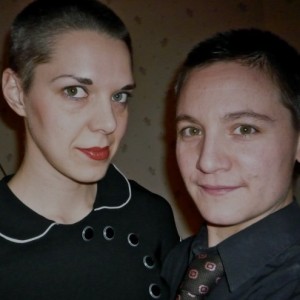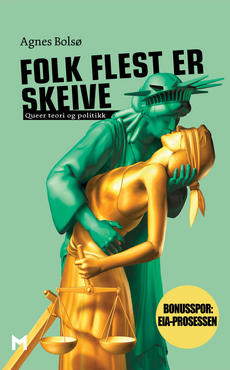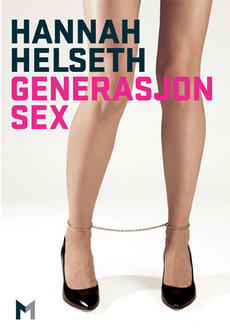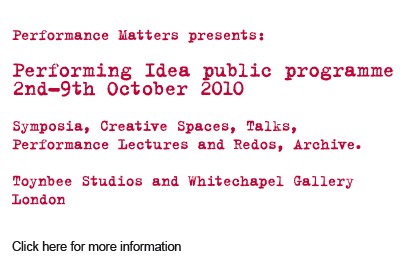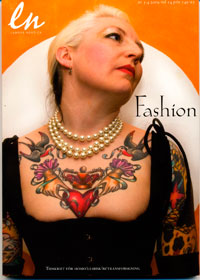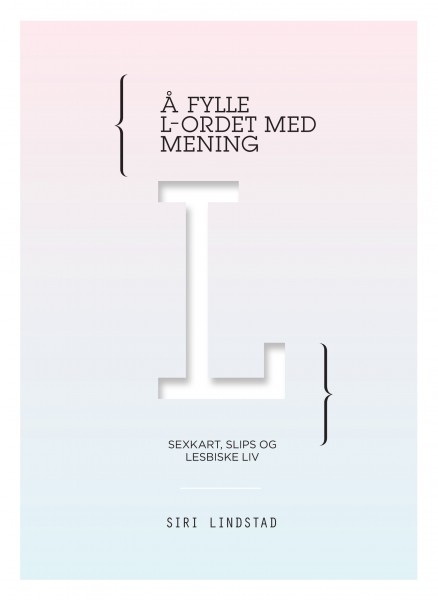Hur föreställningar om de vänsterextrema queeraktivisterna skapas: Mika Nielsen i samtal med Olov Kriström
November 24th, 2012
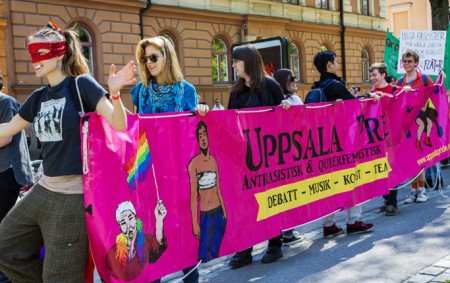
Under senare tid har grupper i Sverige som arbetar med queer politik, vid flera tillfällen utsatts för starka konfrontationer där grupperna sammankopplats med terrorism och tilldelats epitet som ’extrema’ och ’våldsromantiker’. Några exempel: När Uppsala Pride i enlighet med sin antirasistiska, socialistiska och queerfeministiska grund, beslutade att Folkpartiet och dess ungdomsförbund LUF inte fick gå med i festivalens parad, fördömdes detta kraftfullt från flera håll. På inbjudan från Göteborgs universitet samarrangerade aktivistnätverket Göteborgs Queerinstitut och universitetets genusvetenskapliga enhet under två terminer ett seminarium kring ämnet queer antikapitalism. Samarbetet väckte stor kritik i borgerlig media och institutionens prefekt gick ut och tog avstånd från gruppens sätt att arbeta och menade även att något längre samarbete inte skulle ha förekommit (Newsmill 2/11 2011). I somras uppstod en debatt om den sexualpolitiska rörelsens arbete med starka inslag av misstänkliggöranden mot ett antikapitalistiskt queert projekt. En återkommande fråga har varit den om vad som är en legitim kamp. I det här samtalet mellan två aktivister, intervjuar Mika Nielsen Olov Kriström om förhållandet mellan queer, politik och vänsterkamp i Sverige idag.
Mika: Hej Olov Kriström! Vad roligt att du vill dela med dig av dina tankar kring den debatt som började i somras, som handlade om frågor om vilka analyser och strategier som den sexualpolitiska rörelsen i Sverige borde arbeta utifrån. Och inte arbeta utifrån. Mycket kritik formulerades mot aktivism med en queer och vänsterförankring. Jag fastnade vid olika teman. Till dessa hör ifrågasättandet av ett antikapitalistiskt projekt, som fångas genom formuleringar som ”Pride kidnappas från vänster” (SvD 23/7 2012) och av att ord som ’vänsterextrema’ använts. Och att ordet dessutom kunde nämnas i samma andetag som ’högerextrema’. Något annat som jag fastnade vid var den historieskrivning som skapades kring rörelsen. Det blev en mycket selektiv berättelse där flera framträdande progressiva analyser och kamper som funnits, inte fanns med i historien.
När jag försökt förstå hur det blivit möjligt att föra debatten på det sätt som gjordes, med vinklingar som undantränger centrala delar av rörelsens historia, så märker jag att jag återkommer till en (felaktig) bild av att rörelsen skulle ha fötts i samband med (ny)liberaliseringen av svensk politik på åttiotalet. En sådan tanke gör vänster- och queerkritiska inlägg lite mer begripliga, som om något annat aldrig funnits och detta alltid varit ’normalt’. Vad tänker du?
Olov: Du menar att det var åttiotalet som möjliggjorde att man nu från visst håll kan låtsas som att sexualpolitik alltid varit och alltid bör vara i grunden liberal? Det tror jag kan stämma på vissa sätt, men på andra inte. Om man utgår från att vi alla påverkas av hur samhället omkring oss ser ut, vilka berättelser om världen och oss själva som får mest spridning och vilka materiella begränsningar (och möjligheter, på andras bekostnad eller ej) politiska beslut skapar för oss, då är det klart att det är något annat att ha sin tillvaro i ett sammanhang med kollektiva lösningar jämfört med att kunna köra sitt eget privilegierace. Och åttiotalet producerade mer av det senare, något som också förstärks i ett samhällsklimat som det nuvarande. Men det är så klart inget som förändras bara över tid: även nu är det skillnad på vilka som tjänar på solidaritet och vilka som tjänar på individualism. Vad som hänt är väl i så fall att det på något sorts övergripande plan blivit en förskjutning av vad som betraktas som legitimt – till liberalismens fördel. Men jag skulle inte kalla det tidsanda, det finns alltid motsättningar och olika perspektiv som gör sig hörda.
På samma sätt tycker jag att det kan vara riskabelt att hoppas på historiemedvetenhet som en enkel lösning, för det handlar alltid om vilken historia vi berättar och framförallt vad den får oss att göra nu och framöver. Jag brukar i och för sig föreställa mig att 1970-talet var en gyllene epok med radikala rörelser överallt, men det fanns så klart de som redan då tyckte ungefär samma saker som de som idag tycker att queer är för radikalt och att radikalitet är något dåligt. Det fanns inget konsensus 1969 om att Stonewallkravallerna var något bra och jag kan inte förvänta mig något konsensus om det nu heller, även om alla blir informerade om vad som hände. Och även om jag skulle tycka det vore trevligt om fler tog del av den rika tradition av begärsrevolutionära idéer som finns så föreställer jag mig inte att alla skulle göra uppror mot heteropatriarkapitalismen för det. Historien, liksom allting, fungerar alltid i relation till de intressen som finns här och nu, och vill någon förstå historien på ett liberalt sätt är det nog för att den tjänar på att göra en sådan förståelse.
Men det var kanske inte så mycket svar… Så här lite i efterhand tänker jag mest på hur retoriska figurer har kunnat planteras och spridas, inte så mycket på vem som har sagt vad och hur det ska tolkas. Eller kanske snarare, med tanke på vad jag precis sagt om att det inte finns någon enhetlig tidsanda, hur det hela tiden görs försök att sprida sådana retoriska figurer. Om kärnfrågan har varit queerbegreppets status, där det har hävdats att HBT-politiken (eller, i vissa fall, HBT-identiteten) skadas av queers oregerlighet, är det intressant att se hur formuleringar kommer tillbaks i andra sammanhang. Ta till exempel Jonas Gardells bok om aids-traumat, Torka aldrig tårar utan handskar, som skulle kunna leda till så många samtal om sorgearbete, dagens hiv-politik eller hur självgoda självbilder förhindrar oss att se hur det goda, välvilliga Sverige alltid har skapat grupper av “andra” som ställts utanför gemenskapen. Men istället har det på sina håll blivit ytterligare en ursäkt – kanske tydligast i intervjun i Faktum – att dra valsen om queerhotet en vända till. Just i det fallet kan det i och för sig vara intressant att se till just vem som säger vad, då Gardell har sagt sig bli misstolkad (även om det då kanske inte framförallt handlade om förståelsen av queer) av artikelförfattaren, Petter Wallenberg, som i sommarens diskussioner var väldigt aktiv som kritiker av de queera strömningarna.
De andra samtalen, om sorg och självbilder, finns de också, och Faktum-intervjun har uppmärksammats för sina problematiska formuleringar, men min poäng är att den där hotbilden återkommer gång på gång, ofta uppmålad med väldigt vaga syftningar – som ju misstänkliggöranden gärna blir. De som vill prata om och göra andra saker riskerar hela tiden dras in i diskussioner som utgår från att det är det avvikande som är problemet, inte den ordning som kallar sig normal. Istället för att till exempel analysera hur det går att skapa motstrategier till den repression som följde på aktionen mot polisseminariet under HBTQ-festivalen i Göteborg, upptas tiden och orken av diskussioner om ifall aktionen överhuvudtaget var legitim. Jag säger inte att det är en bra sak att sluta sig inom en krets av likasinnade och aldrig försöka se sig själv ur andra perspektiv, men jag tycker det är en viktig sak att klargöra vad grunden för och målet med ens aktivism är, och vara tydlig med vilka eventuella konflikter som handlar om de grunderna och de målen.
En annan fråga om själva debatten, som hänger ihop med problemformuleringsproblemet ovan, är vilka som talar och vilka som inte gör det. Att överhuvudtaget kalla något en “debatt” kan bidra till en föreställning om en öppen offentlighet, där olika åsikter på lika villkor låter sig göras hörda –vilket i sig är en liberal föreställning om de fria, rationella och starka individerna. Varje rimlig analys av en sådan “debatt” måste vara aktsam på att inte missta det sagda för det verkliga. Dels kan det, som sagt, finnas medvetna val kring att inte ge sig in i diskussioner vars utgångspunkter är normalitetsberoende. Dels är det också långt ifrån alla som har tillträde till debattens arena. Det kan handla om att inte känna till de facebook-grupper som utnämnts till viktiga, att inte ha status nog att få texter publicerade där de sprids, att överhuvudtaget inte använda det språk som kvalificerar en till samtalet eller tusen andra skäl. På så sätt saknas ofta vad som skulle vara de allra mest väsentliga rösterna, de kritiska, de underordnade, de för normen obegripliga. Men, vilket är viktigt att komma ihåg, de rösterna finns på andra håll, och det egentliga arbetet med sociala rörelser sker där.
Mika: Apropå historieskrivningar som du var inne på, du är själv intresserad av den radikala kamp som bedrevs på sjuttiotalet. Vad tänker du kring dess frånvaro i historieskrivningen?
Olov: Att det är intressant hur historisk medvetenhet kan användas som ursäkt för en avradikaliserad hållning i nuet. För även om det alldeles uppenbart finns de som inte vet någonting alls om sexualpolitisk historia (ofta, men inte alltid, är de borgerliga) så finns det också de som i vart fall säger sig ha både erfarenhet av och förståelse för “hur det var förr”. Men det är inte mycket till hjälp att känna till Stonewall, ha läst aldrig så många gaymarxister eller kunna allt om hur Queer Nation kom till om det enda som kommer ut av det är historiserande avfärdanden. Jag har hört Stonewall förklaras med att det ju var så svårt på den tiden, förtrycket var så stort och inga lagliga vägar stod till buds för de stackars homosexuella. Ett sånt resonemang kan tyckas både respektfullt och historiserande, men osynliggör betydligt mer än det förklarar: det hade i USA länge funnits propra organisationer som förde en respektabel sexualpolitik inriktad på normalisering och integrering. Från just de organisationerna sades det att Stonewall-upproret var onödigt och kontraproduktivt, och den Gay Liberation-rörelse som kom efter kravallerna riktade lika mycket kritik mot dem som mot det straighta normsamhället. Ett annat problem med att säga att det förvisso kan ha varit på sin plats med konfrontation och konflikt förr, men inte längre, är att det blir ett antagande om att alla numera har det rätt bra. Det må vara sant att det är bekvämare att leva ett medelklassigt bögliv nu än för 40 år sedan, men en som utan papper flytt från dödshot kan nog sägas ha det minst lika illa ställt som de som slogs med New Yorkpolisen 1969. Det har dessutom kravallats rätt friskt inom lhbtq-rörelsen både innan och långt efter de där juninätterna, men det verkar som att det behövs ett visst avstånd, tidsmässigt eller geografiskt, om de ska tillåtas tas med i den auktoriserade och accepterade historieskrivningen (och då, som sagt, oskadliggjorda just genom det avståndet).
På samma sätt kan också 70-talsradikalismen mycket väl avfärdas som uttryck för en annan, lite galen eller sekteristisk tid, och historisk medvetenhet går att använda för att säga, vilket har gjorts i debatten nu, att queer mycket väl kan ha fyllt en funktion tidigare, men nu blivit förstört av för mycket feminism, transkamp, antirasism eller anarkism. Återigen: det är alltid möjligt att göra olika läsningar av historien och även liberaler har väl på sätt och vis rätt till sina egna – åtminstone i den mån de erkänns som just liberala. Så om det är något jag skulle önska är det att 70-talets radikalism uppmärksammades mer för vad den kan tillföra i analytiska perspektiv och inspirerande förebilder, snarare än som enbart en historielektion.
Mika: Vissa frågor som också hade varit möjliga att ta upp i debatten, gjordes inte till föremål för diskussion. Exempelvis skulle en kunna tänka sig att liberala idéers betydelse för rörelsen diskuterades. Precis som icke-liberala analyser lagts under lupp och problematiseras. Så skedde nu inte.
Olov: Jag tror det har att göra med vad jag nyss beskrev; att frågeställningarna från början är så beroende av en normal, liberal världsbild och att det kan ligga närmre till hands för de som ansluter sig till den världsbilden att alls ge sig in i debatten. På sätt och vis kan det då vara en smart strategi att använda sig av resonemang kring inkludering för att göra sin poäng, såsom argument kring att militärens, polisens och migrationsverkets närvaro på en HBTQ-festival ställer till bekymmer för deltagare som har erfarenhet av att utsättas för militärt eller polisiärt våld eller riskerar att deporteras. Det är alldeles rimliga argument som nog måste göras, men det är också argument som på sätt och vis håller sig inom det liberalas gränser och jag tror att det är nödvändigt att dessutom peka på politiska skillnader som ligger utöver de som ryms inom ramen “ond liberal – god liberal”. För att kunna synliggöra en liberal samhällsförståelse bör man också synliggöra sin egen samhällsförståelse. Nöjer jag mig med en vision om att alla ska få vara lika delaktiga i samhället så som det är organiserat idag, eller vill jag verka för ett samhälle som fungerar på ett grundläggande annorlunda sätt?
Mika: Jag sätter debatten i relation till (föreställningen om) att en antikapitalistisk queer aktivism vuxit sig starkare. Och ser den som en reaktion på detta. Något som tydliggjorts i debatten är skiljelinjer. På så vis blir också en dominerande analys tydlig just som en analys bland flera. En analys som vilar på vissa ideologiska ställningstaganden. Det gör vänsterkritik hotfull, redan genom att påminna om existensen av olika ingångar.
Olov: Om man tittar närmre på det hela är det inte bara en skiljelinje som blir tydlig, det är flera. Det finns de som motsätter sig queer utifrån ett försvar av kategoriberoende identitetspolitik, det finns de som motsätter sig konfrontationstaktik och ett föreställt våld, de som tycker att queera personer är osmakliga och omogna, det finns kritik mot att “splittra” hbt-kollektivet genom att ta upp frågor om rasism eller transfobi, det finns föreställningar om att heterosexuella infiltrerar under queerflagg för att ställa till bråk, det finns alla tänkbara varianter av liberaler som mest bara tycker att det är onödigt att hålla på och ifrågasätta samhället. Ibland sammanfaller flera sådana ståndpunkter, men det kan vara värt att uppmärksamma mångfalden, inte minst för att det kan vara en tröst att se att det handlar om en ganska splittrad skara. På motsvarande sätt finns det så klart också en mångfald av vänsterqueera perspektiv, och en del av dragandet av skiljelinjer kan också handla om att hitta fruktbara sätt att hantera olikheter mellan de som vi vill alliera oss med.
Men alla dessa nyanseringar till trots så tror jag att det mycket väl kan vara som du säger, att kritiken av den illusoriska enheten faktiskt blir en sorts vattendelare. På så sätt kan jag faktiskt hålla med de som vill kasta ut q:et från hbt – det skulle kunna vara ganska utvecklande att tydligare skapa queera rörelser utanför den institutionaliserade hbt-politiken. Det kan kanske vara värt att poängtera att jag då pratar om just rörelser och politik, inte att det skulle bli en uppdelning mellan de som identifierar sig som homo, bi eller trans kontra de som kallar sig queera. Vad som är väsentligt är vilka mål man strävar mot (och, i vissa fall, hur man arbetar för att uppnå dem), inte vilka självbilder de inblandade har. Queera rörelser föreställer jag mig till och med har lättare att vara öppna och solidariska, då det blir tydligt att frågorna som är centrala är de om makt och normalitet, inte identitet. Vissa saker skulle nog gå förlorade i en sådan splittring, kanske framförallt tillgång till de resurser som normsamhället erbjuder de som ställer upp på en viss assimilering, och å andra sidan skulle hbt-festivalerna bli avsevärt mycket tristare affärer. Men det finns tusen sätt att bygga en stark och rik rörelse även utan statsstöd, och tänk vilken energi som skulle frigöras till att skapa de queer-festivaler vi drömt om när det inte behöver bråkas om huruvida Migrationsverket ska vara med eller inte.
Nu tror jag inte att någon behöver (eller att det ens går att) fatta ett beslut om att q:et ska gå sin egen väg. Dels fungerar mycket av rörelsen redan på det sättet, dels tycker jag att det faktiskt kan vara okej att driva en queer agenda inom mer etablerade strukturer. Vad jag dock vill poängtera en gång till är att det alltid, kanske särskilt då man agerar inom ett system som man i grunden är kritisk till, är viktigt att vara tydlig med vilka politiska mål man strävar mot, och uppmärksamma att andra kan ha helt andra mål även om de för tillfället arbetar gemensamt med en själv.
*

Olov Kriström (f. 1979) arbetar som bibliotekarie och är efter 15 års diverseaktivism för närvarande engagerad i Göteborgs Queerinstitut. Till vintern 2012/13 aktuell som introduktör till boken Bidrag till kvinnotvisten, en återutgivning av tre pamfletter (Bevis att qvinnan egentligen icke är menniska; Hvad äro männerna? Omenniskor – alltså icke menniskor; Ett ark papper, hvaruti, med anledning af “Bevis att qvinnan icke är menniska” mycket ifrågasättes, om det i sjelfva verket är någon heder att vara menniska) på Bokbål förlag.

Mika Nielsen (f. 1972) arbetar med en avhandling om svensk konsumentpolitik och intresserar sig för statlig styrning under det sena 1900-talets masskonsumtionssamhälle, när det gäller frågor om människors behov och relationer. Ägnar sig också åt aktivism inom och utanför akademin.
